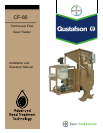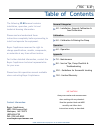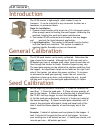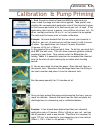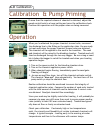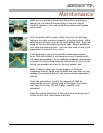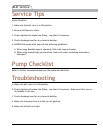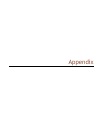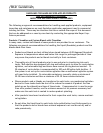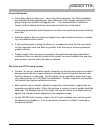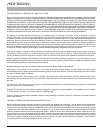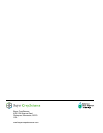
6.0 Calibration
Calibration & Pump Priming
If more than the required volume of chemical is obtained, adjust the
speed control knob to a lower setting and rerun the calibration check.
Continue this operation until the proper rates are being measured.
When you’ve obtained the proper chemical-to-seed ratio, reconnect
the discharge line to the tting on the application tube. You are ready
to treat seed when the proper chemical-to-seed rates are obtained.
The chemical will be applied to the seed in the transition. The seed
and chemical will be mixed in the blending chamber. Treated seed will
then be discharged through the two-way bagger. Be sure a bag or seed
bin is below the bagger to catch the treated seed when your treating
operation begins.
1. Turn on the power switch for the blending chamber drum.
2. Turn on the chemical applicator power switch.
3. When chemical begins owing, immediately open the seed gate.
Treating will begin.
4. As soon as seed ow stops, turn off the chemical aplicator switch.
The chemical “does not” stop automatically. You must turn off the
pump switch yo stop the chemical ow.
Routine calibration should be monitored to ensure the integrity of
chemical application rates. Compare the number of seed units treated
with the total amount of chemical used to determine if correct rates
are obtained. Readjust chemical ow accordingly.
Since your seed may be slightly moist after treating, it will probably be
necessary to open your drill more than usual to ensure proper seeding
rates (usually at least 10% over untreated seed). Treated seed gener-
ally does not ow as freely as untreated seed.
Check your calibration. If extremely high or low temperatures
exist, the viscosity and owability of certain treatment chemicals will
change. A typical example - treating early in the morning at cooler
temperatures and then in the afternoon with warmer temps.
Operation



